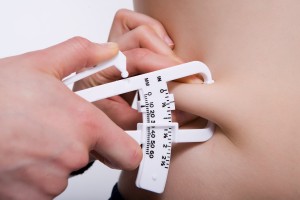Posted on June 25, 2016 by Jenny Cromack
Eat As Few Calories As Possible For Fat Loss.
As I said in Part 1 of our Nutritional Advice People Believe, The world of nutrition is certainly is confusing, not because maintaining a healthy diet is difficult but because there is so many contradicting ideas floating around! We aim, in these blogs, to help bust some of these myths and give you a clearer understanding of what is right!
The main reason that this advice is so damaging is because nutrition is individual to everyone. An appropriate diet for a fit and healthy athlete is very different than someone who is wanting lose weight and drop body fat. For example Chris, our Master Personal Trainer, who is over 6 foot tall and weighs over 15 stone and mainly lifts weights will have a different nutritional plan to Jenny, our Director who is a touch over 5 foot (on a good day!) and trains for triathlons so does a mixture of cardio and weights.
Going back to the topic of this blog – eating fewer calories to lose more weight or for fat loss, for someone who has no understanding or support around nutrition I can understand why people believe this. It kind of makes sense, surely less calories equals more weight lost. But it’s not that simple.
In order to lose weight or burn fat you have to create an energy defect so eat fewer calories than what you burn, however the key to this energy deficit is HOW you create that energy deficit.
Whenever I hear of people cutting down on calories or eating as few as possible they usually drop between 1000 and 1200 calories. Pretty much within a day your body senses this dramatic drop in calories and energy and body starts to down regulate your metabolism in order to preserve food stores, resulting in you burning fewer calories. Your body is very clever and realises that if you continue to ‘starve’ yourself you will not survive so instead of burning more fat it actually clings on to it and stores it for your up and coming famine.
Your body requires a certain number of calories a day (Basal Metabolic Rate) to keep your organs working and bodily functions working. If you dramatically reduce calories your body goes into survival mode and won’t burn calories. Any calories used will be from muscle because these are good quality calories compared to fat. But if you want to optimise fat loss and look lean, burning muscle is not a good idea!
Additionally, this stress you put your body under releases cortisol. Cortisol is not a hormone you want to be encouraging if you’re looking to lose weight. Conversely, you need to keep cortisol levels as low as possible for optimal fat loss.
Food such as protein and fibrous vegetables cause an affect on gut hormones telling your brain that you are full whilst keeping your blood sugar steady and insulin low. If you were to eat a meal of steak and greens and a meal of granola with the same amount of calorie content you will feel fuller for longer eating the protein high steak and veggies and your body burn more calories. So it’s also important to consider the type of food you eat to burn the optimal amount of fat.
Also, the body uses different amounts of calories to break down carbs fats and proteins. A meal of pure protein requires the body to burn 25% of the calories it provides to digest.
In summary, for optimal fat loss you should never cut out calories below your BMR and should focus on consuming calories high in protein, good fats and complex carbs.


